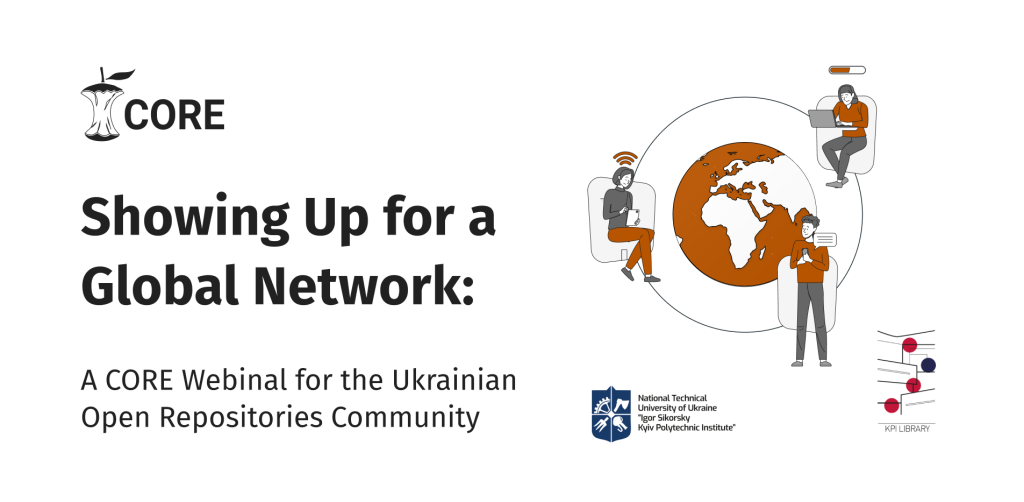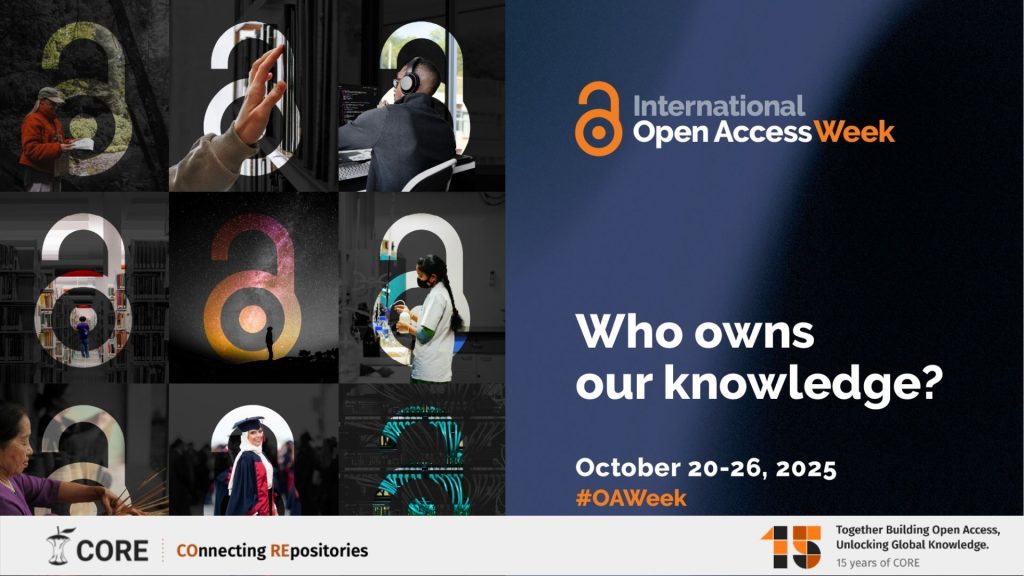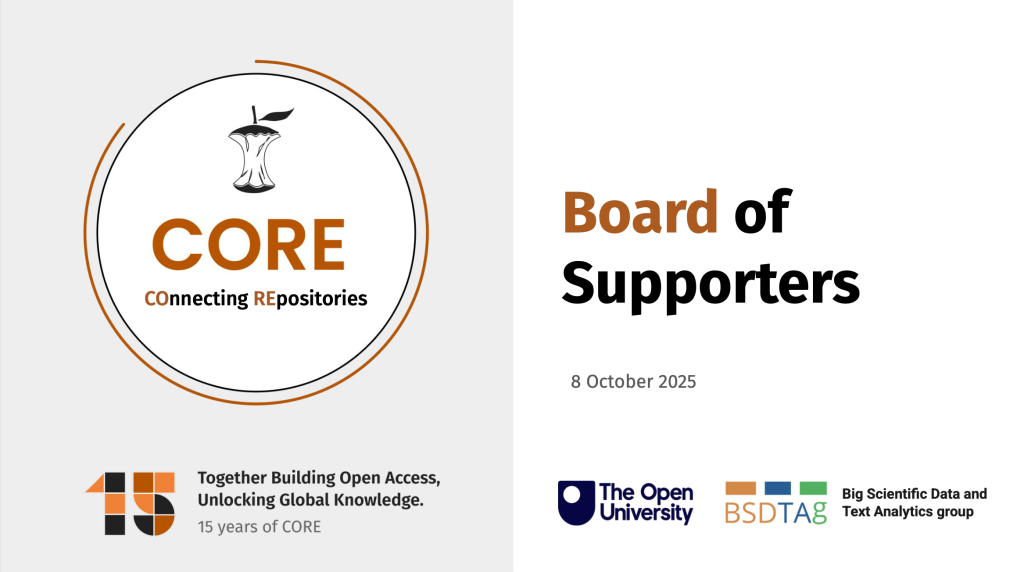
In November 2025, CORE publicly announced its strategic support for the creation of the Ukrainian open repositories community, led by the Scientific and Technical Library of Igor Sikorsky Kyiv Polytechnic Institute. At the time, we described this partnership as both a strategic and deeply personal commitment rooted in solidarity, collaboration, and long-term investment in Ukraine’s open research infrastructure.
Today, that commitment continues in practice.
On 25 February 2026, CORE will take part in a dedicated webinar hosted in partnership with The KPI Library, designed specifically for Ukrainian librarians, researchers, and repository administrators and delivered in Ukrainian.






